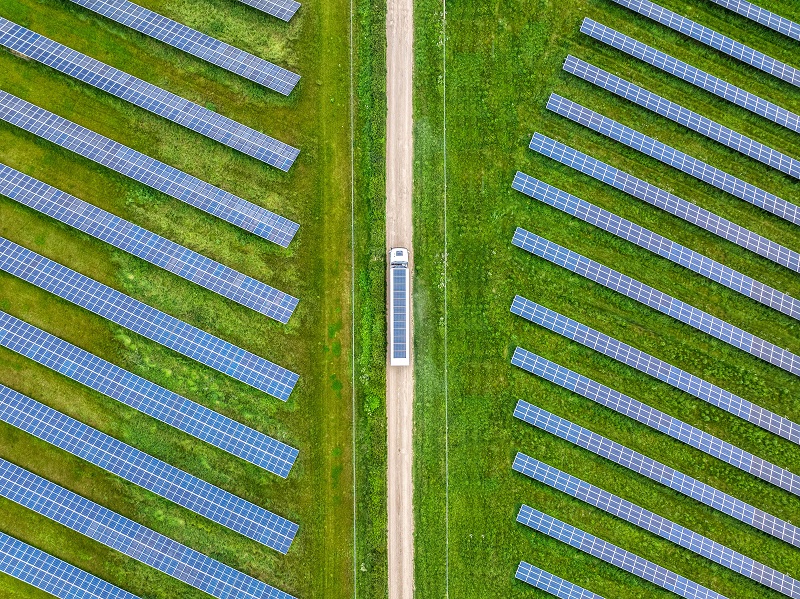
Chilled by the Sun: Moran Logistics Trials Sunswap’s Electric Transport Refrigeration
Cold Chain Federation member Sunswap, a manufacturer of Endurance, a purpose-built fully electric transport refrigeration unit, successfully completed a 10-day trial of its battery and solar-powered transport refrigeration technology. The trial was conducted in collaboration with Cold Chain Federation member Moran Logistics, a leading multi-temperature logistics specialist.
The battery and solar-powered system was put on real-world routes for Moran’s contract with Arla Foods, the fifth biggest dairy company in the world. The trial effectively demonstrated Sunswap Endurance’s performance in transporting chilled goods at 2°C.
How Solar Energy Powered Moran Logistics Chilled Deliveries
A standout feature of the trial was its impressive demonstration of solar power. Data shows that Endurance was capable of operating solely on solar energy throughout the entire trial period, highlighting the substantial impact of solar energy.
The solar panels fixed to the trailer’s roof are a key element of the Sunswap system, reducing the need for grid charging, increasing range flexibility, and lowering costs by minimising the need for additional battery modules.
To fully explore Endurance’s capabilities, the Moran team used both solar power and grid charging, allowing them to understand the system’s versatility and ease of integration into their existing operations.
This trial builds upon Sunswap’s previous successful trials such as with Muller and GIST, which ran entirely on solar power for two weeks. The consistent performance across various logistics environments further validates the technology’s effectiveness and reliability in real-world scenarios.
Moran Logistics, aiming for Net Zero by 2030, found the Endurance unit integrated seamlessly into their operations. The unit’s operational performance matched diesel alternatives while delivering significant environmental benefits.
Operational and Emissions Savings
The trial demonstrated significant projected savings. Sunswap Endurance unit offers a 79% reduction in operational expenses (OPEX) and a 27% decrease in total cost of ownership (TCO) compared to traditional diesel units.
Beyond financial advantages, the environmental impact is substantial. If Moran were to equip 260 trailers with Sunswap Endurance units, Moran could eliminate 26,979 tonnes of CO2 and remove 261 tonnes of NOx from the atmosphere. This significant reduction in emissions aligns with Moran’s ambitious sustainability goals and demonstrates the transformative potential of Sunswap’s technology in the logistics industry.
Potential impact adopting across Moran’s Fleet
- OPEX savings: 79%
- TCO reduction: 27%
- CO2 eliminated: 26,979 tonnes
- NOx removed: 261 tonnes
Reaching Sustainability Without Compromising on Performance
Nick Mackay, Transport Operations Director, Moran Logistics:
“At Moran, we’re committed to embracing sustainability and reaching our Net Zero target by 2030. Initially, we approached this trial carefully as with any new technology. However, the Sunswap Endurance unit quickly proved itself, performing exactly as we needed – just like any other fridge in our fleet, but with zero emissions. This trial has shown us that we don’t need to compromise on performance to achieve our sustainability goals.”
Alastair Gough, Head of Business Development at Sunswap:
“Our trial with Moran Logistics further validates the effectiveness of our battery and solar-powered refrigeration technology. The Endurance unit could have run entirely on solar demonstrating that sustainable solutions can seamlessly integrate into existing logistics operations. This follows our previous successful trials with Muller and GIST that ran without the need for charging, reinforcing that solar power is a game-changer in refrigerated transport.”
The partnership between Sunswap and Moran Logistics represents a significant step towards a sustainable cold chain. Proving that by harnessing solar power and advanced battery technology, the logistics industry can reduce its carbon footprint while maintaining operational efficiency.


Comments are closed.
